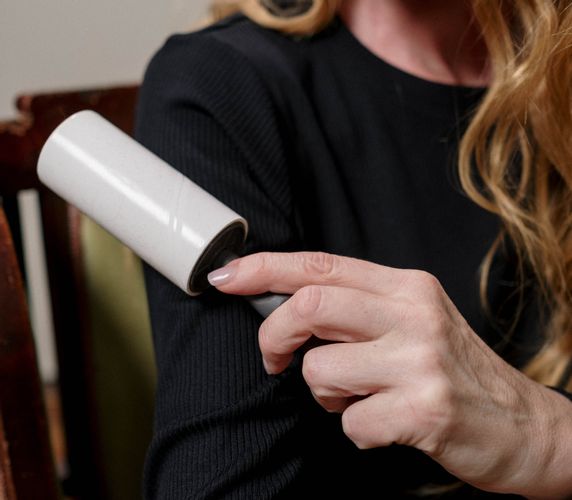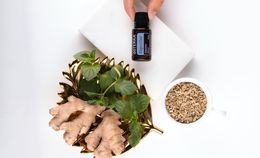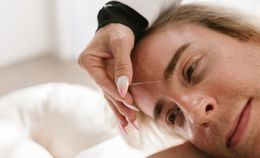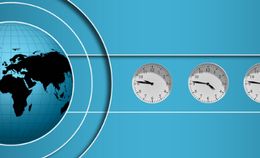Spring is coming! Sneeze. Don't cry. Sneeze. Oh wait, those are not happy tears: Do you have allergies? Have you tried acupuncture?
In this article, we are going to look at how acupuncture can work for allergies, what points are often used, how effective it is, and what you may expect to pay if you choose to try it.
Acupuncture for Allergies
Do you know any statistics about seasonal allergies? Here are three:
1 in every 6: Americans live with seasonal allergies.
-
$2 to $5 billion: Is what it costs annually in direct health expenditures.
-
$2 to $4 billion: Is what it can cost annually in lost productivity.
If you live with allergies, you may have also experienced a lower quality of life, as well as missed out on either work or school. The good news is that acupuncture can be an effective treatment option.
How Acupuncture Works for Allergies
There are quite a few different ways that acupuncture has been studied and documented to work for allergies. First, acupuncture improves the peripheral circulation for both skin and muscles. Second, three hormones are released:
-
Endorphins
-
Enkephalins
-
Dynorphins
Fourth, acupuncture has been shown to impact the immune system by activating and creating activity of the following:
-
Natural killer cells
-
Lymphocyte proliferation
-
Chemotaxis
-
Phagocytosis
Fifth, acupuncture can lead to a reduction of the eosinophil count in the blood and nasal secretion.
All of these things combined have to lead to a greater understanding of how acupuncture may impact people suffering from allergies.
How Effective is Acupuncture for Allergies?
To understand the effectiveness of acupuncture for allergies, this one study compared acupuncture to medication through sixty different cases. Thirty cases were put into the medication group and the other thirty cases were placed into the acupuncture group.
This is what was documented and discovered through the study:
Acupuncture group: 96.7% (29/30)
Medication group: 93.3% (28/30)
Those percentages are from the end of the study. There was also a follow up to find out if acupuncture continued to be beneficial. This is what was documented in the follow-up:
Acupuncture group: 86.7% (26/30)
Medication group: 56.7% (17/30)
Essentially, the study found acupuncture can have both short-term and long-term positive efficiencies on allergies.
6 Acupuncture Points for Allergies
According to a meta analysis of over 30 studies, there are six acupuncture points that are most often used for allergies:
LI20 (Yingxiang
-
Yintang (extra)
-
LI4 (Hegu
-
ST36 (Zusanli)
-
EX-HN8 (Shangyingxiang
-
Bitong
Are those the only acupuncture points that may be used? No. This one trial is using the following points:
Hegu(LI4)
-
Yingxiang(LI20)
-
Chize(LU5)
-
Sibai(ST2)
-
Yintang(EX-HN3)
-
Shangyingxiang(EX-HN8)
-
Shangxing(GV23)
-
Dazhui(Du14)
Apart from the point Hegu (Ll4) that is shared between the meta-analysis and the trail - all the others are different.
Why so Many Different Points for Allergies
There are two types of acupuncture points when it comes to treatment:
-
Suggested and recommended points: These are points selected from knowledge of TCM and the human body.
-
Chosen points: These are points identified based on feel and touch - looking for body tissue tension, an interview, and training in TCM.
So, at its heart, acupuncture treatment for allergies is as unique and customized as the person seeking treatment.
How Many Acupuncture Sessions for Allergies?
To get an idea of how many treatments you may need for allergies, let's consider the fact that this one trial used 12 treatments, each 30 minutes long - while this other trial also used 12 treatments. So is 12 treatment sessions the golden ticket for allergy relief? It could be but acupuncture is a very personalized treatment. You may experience relief in as little as one to four sessions. You may need six to twelve sessions.
Always communicate with two people when it comes to the number of treatments needed:
Your acupuncturist
-
Yourself
You may also find treatments for maintenance, after achieving a reduction in allergies will increase your quality of life and help you maintain it.
What will it Cost Me?
When aiming to get an understanding of what it may cost to treat your allergies with acupuncture, it is important to know that you have two options:
Individual acupuncture treatment: This will be slightly more costly of the two options. It will give you an individualized and one-on-one treatment experience with your acupuncturist. Depending on where you live in the country, you may find yourself paying $75-$160 for each session of acupuncture. For more information, read: How Much Does Acupuncture Cost?
-
Community acupuncture treatment: This will be the slightly more affordable option of the two options if you are seeking acupuncture on a budget. It will give you a group experience when it comes to treatment. You will still get one-on-one treatment with an acupuncturist but other people getting treatment will also be in the room. Want to know what it is like to go to a community acupuncture session, and what it may cost? Read: I Tried Community Acupuncture and This is What Happened
References:
Acupuncture for Seasonal Allergic Rhinitis - Full Text View. (n.d.). Retrieved February 27, 2019, from https://clinicaltrials.gov/ct2/show/NCT00610584
Cj. (2018, April 26). Acupuncture Relief Of Nasal Allergies Confirmed. Retrieved February 27, 2019, from https://www.wangacupunctureclinic.com/acupuncture-relief-of-nasal-allergies-confirmed/
Effectiveness and Safety of Acupuncture Combined With Moxibustion for Allergic Rhinitis - Full Text View. (n.d.). Retrieved February 27, 2019, from https://clinicaltrials.gov/ct2/show/NCT02339714
Hauswald, B., & Yarin, Y. M. (2014). Acupuncture in allergic rhinitis: A Mini-Review. Allergo journal international, 23(4), 115-119. Retrieved from https://www.ncbi.nlm.nih.gov/pmc/articles/PMC4479426/
Ortiz, M., Brinkhaus, B., Enck, P., Musial, F., & Zimmermann-Viehoff, F. (2015, March 20). Autonomic Function in Seasonal Allergic Rhinitis and Acupuncture - an Experimental Pilot Study within a Randomized Trial. Retrieved February 27, 2019, from https://www.karger.com/Article/FullText/381086
Seasonal Allergies and Complementary Health Approaches. (2018, May 03). Retrieved February 27, 2019, from https://nccih.nih.gov/health/providers/digest/allergies
Seidman, M. D., Gurgel, R. K., Lin, S. Y., Schwartz, S. R., Baroody, F. M., Bonner, J. R., ... Nnacheta, L. C. (2015). Clinical Practice Guideline: Allergic Rhinitis. Otolaryngology - Head and Neck Surgery, 152(1_suppl), S1-S43. https://doi.org/10.1177/0194599814561600
TS, L., & Qiu. (n.d.). [Efficacy on perennial allergic rhinitis treated with acupuncture at three nasal poinits and the acupoints selected by syndrome differentiation]. Retrieved February 27, 2019, from http://europepmc.org/abstract/MED/25675568















